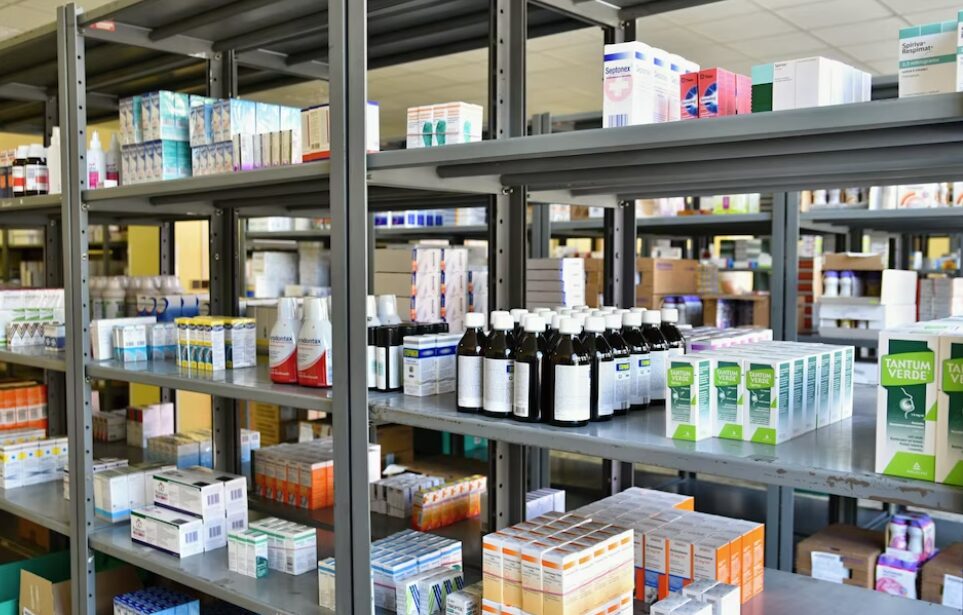Durg & Cosmetic License
It seems you’re referring to Durg & Cosmetic License in Delhi which is a regulatory requirement for businesses involved in manufacturing, selling, or distributing drugs and cosmetics in India. Here’s an overview of the process for obtaining a Drug and Cosmetic License:

Understanding Durg & Cosmetic License in Delhi
Overview of Drug Licensing Laws: The Drugs and Cosmetics Act, 1940, and the Drugs and Cosmetics Rules, 1945, regulate the manufacture, sale, and distribution of drugs in India. These laws set the framework for obtaining licenses and ensuring compliance with quality and safety standards.
Types of Drug Licenses: Drug licenses are categorized into Manufacturing License, Wholesale License, Retail License, and Import/Export License. Each type of license serves specific purposes and entails distinct requirements and procedures.
Drug Licensing Process
Manufacturing License: To obtain a manufacturing license, applicants must meet stringent requirements related to infrastructure, equipment, personnel, and adherence to Good Manufacturing Practices (GMP). Detailed documentation and site inspections are conducted to assess compliance with regulatory standards.
Wholesale License: Wholesale drug licenses authorize entities to distribute pharmaceutical products to retailers, hospitals, and other establishments. Applicants must demonstrate proper storage facilities, inventory management systems, and record-keeping practices to ensure product integrity and safety.
Retail License: Retail drug licenses enable pharmacies and dispensaries to sell pharmaceutical products directly to consumers. Requirements include qualified pharmacists, appropriate premises, compliance with dispensing guidelines, and record-keeping procedures.
Import/Export License: Licenses for the import/export of drugs are granted to entities engaged in international trade of pharmaceutical products. Documentation, customs clearance procedures, and compliance with international regulations are essential aspects of obtaining import/export licenses.
Understanding Cosmetic Licensing
Overview of Cosmetic Licensing Laws: Cosmetics in India are regulated under the Drugs and Cosmetics Act, 1940, and require licenses for manufacturing, distribution, and sale. The regulatory framework ensures consumer safety, product quality, and adherence to labeling requirements.
Types of Cosmetic Licenses: Similar to Durg & Cosmetic License in Delhi include Manufacturing License, Wholesale License, Retail License, and Import/Export License. Each category has specific criteria and procedures for obtaining licenses
Cosmetic Licensing Process
Manufacturing License: Cosmetic manufacturers must adhere to stringent requirements regarding facilities, equipment, raw materials, and adherence to Good Manufacturing Practices (GMP). Detailed documentation, product formulations, and quality control measures are essential for obtaining manufacturing licenses.
Wholesale License: Wholesale licenses for cosmetics authorize entities to distribute products to retailers, salons, and other commercial establishments. Storage facilities, labeling requirements, and compliance with product safety standards are key considerations for wholesale license applicants
Retail License: Retail licenses enable businesses to sell cosmetics directly to consumers through various channels, including retail outlets, e-commerce platforms, and direct sales. Compliance with labeling requirements, product safety standards, and consumer protection regulations is essential for retail license holders.
Import/Export License: Entities engaged in the import/export of cosmetics must obtain licenses to facilitate international trade. Documentation, customs clearance procedures, and adherence to international regulations are critical aspects of obtaining import/export licenses.
Application Process and Documentation
Preparation of Documents: Applicants must prepare comprehensive documentation, including application forms, site master files, manufacturing processes, product formulations, quality control procedures, and personnel qualifications.
Submission of Application: Applications for drug and cosmetic licenses are submitted to the Central Drugs Standard Control Organization (CDSCO) or State Drug Regulatory Authorities. Online portals, submission deadlines, and application fees vary depending on the jurisdiction.
Inspection and Verification: Regulatory authorities conduct thorough inspections and verification processes to assess compliance with licensing requirements, safety standards, and quality assurance measures. Site visits, document reviews, and compliance audits are conducted to ensure adherence to regulatory guidelines.
Issuance of License: Upon successful completion of the inspection and verification process, licenses are issued to applicants. Timelines for processing applications and issuing licenses vary based on the complexity of the application and jurisdictional requirements.
Compliance and Renewal
Compliance Requirements: License holders must adhere to ongoing compliance requirements, including regular inspections, quality audits, and reporting obligations. Compliance with regulatory updates and industry standards is essential for maintaining the validity of licenses.
Renewal Process: License renewal procedures involve submitting updated documentation, paying renewal fees, and undergoing periodic inspections to ensure continued compliance with regulatory standards. Timely renewal of licenses is critical for uninterrupted operations and compliance with regulatory requirements.
Classification or Types of Drugs License
Manufacturing License:
Formulation Manufacturing License: This license is required for the manufacture of finished dosage forms such as tablets, capsules, syrups, injections, creams, ointments, etc.
Bulk Drug Manufacturing License: For the manufacture of active pharmaceutical ingredients (APIs) or bulk drugs used in the formulation of finished dosage forms.
Ayurvedic, Siddha, Unani (ASU) Manufacturing License: Specifically for the manufacturing of Ayurvedic, Siddha, or Unani medicines.



Wholesale Drug License:
Minimum Wages Act, 1948: The Minimum Wages Act establishes minimum wage rates for different categories of workers to ensure that they receive fair remuneration for their work. It empowers the government to fix and revise minimum wages periodically based on factors such as cost of living, prevailing market rates, and socio-economic conditions.
Payment of Wages Act, 1936: The Payment of Wages Act regulates the payment of wages to workers employed in factories, industrial establishments, and other specified sectors. It lays down provisions related to the timely payment of wages, deductions, and permissible deductions from wages, and the maintenance of wage records by employers.
Employees’ Provident Funds and Miscellaneous Provisions Act, 1952: The EPF Act establishes a provident fund scheme for employees and mandates employers to contribute a percentage of employees’ wages to the Employees’ Provident Fund (EPF). It aims to provide social security and retirement benefits to employees and their families.
Employees’ State Insurance Act, 1948: The ESI Act provides for the establishment of the Employees’ State Insurance (ESI) scheme, which offers medical, disability, maternity, and other benefits to employees and their dependents in case of sickness, injury, or death arising out of employment.
Factories Act, 1948: The Factories Act lays down provisions related to the health, safety, and welfare of workers employed in factories. It covers aspects such as factory premises, working hours, employment of women and children, hazardous processes, and welfare facilities.
Industrial Disputes Act, 1947: The Industrial Disputes Act regulates the resolution of industrial disputes between employers and workers, including issues related to wages, layoffs, retrenchment, strikes, and lockouts. It provides mechanisms for conciliation, arbitration, and adjudication of disputes to promote industrial peace and prevent disruptions in production.
Maternity Benefit Act, 1961: The Maternity Benefit Act mandates employers to provide maternity benefits to women employees, including paid maternity leave, medical benefits, and nursing breaks. It aims to promote the health and well-being of pregnant and nursing mothers in the workforce.
Child Labor (Prohibition and Regulation) Act, 1986: The Child Labor Act prohibits the employment of children in certain hazardous occupations and regulates the working conditions of child workers in non-hazardous industries. It aims to eliminate child labor and ensure the protection and rehabilitation of child workers.
Equal Remuneration Act, 1976: The Equal Remuneration Act prohibits discrimination in wages based on gender and mandates equal pay for equal work for men and women employees. It promotes gender equality and prevents gender-based wage disparities in the workplace.
Contract Labour (Regulation and Abolition) Act, 1970: The Contract Labour Act regulates the employment of contract labor and ensures their welfare and rights. It requires contractors and employers to comply with various provisions related to wages, working conditions, and social security for contract workers.
Classification or Types of Drugs License
Retail Drug License: Required for the operation of retail pharmacies or drug stores where prescription and over-the-counter (OTC) drugs are dispensed to patients. Retail drug licenses are issued by State Drug Regulatory Authorities.
Loan License: A loan license is granted to a licensee to manufacture drugs on behalf of a manufacturing license holder. The licensee undertakes the manufacturing process, but the responsibility for compliance and quality lies with the license holder.
Import License: Required for the importation of drugs or pharmaceutical products from other countries into India. Import licenses are essential to ensure the safety, efficacy, and quality of imported drugs.
Export License: Enables companies to export drugs and pharmaceutical products manufactured in India to other countries. Export licenses ensure compliance with international regulations and quality standards.
Test License: Issued for the conduct of tests or analysis of drugs, cosmetics, or raw materials related to the pharmaceutical industry. It allows authorized laboratories or institutions to perform quality control tests and assessments.
Clinical Trial License: Required for conducting clinical trials of investigational drugs or new formulations. Clinical trial licenses are obtained from the Drug Controller General of India (DCGI) and involve stringent regulatory oversight to ensure patient safety and ethical standards.
Blood Bank License: Essential for the establishment and operation of blood banks or blood storage facilities where blood components and blood products are collected, processed, stored, and distributed for therapeutic purposes.
Narcotic Drugs and Psychotropic Substances (NDPS) License
Mandatory for handling, stocking, or distributing narcotic drugs and psychotropic substances under the Narcotic Drugs and Psychotropic Substances Act, 1985. Such licenses are closely monitored to prevent misuse and abuse of controlled substances.
